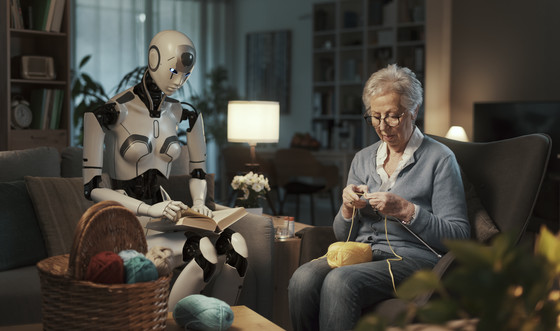DeepMind co-founder talks about how artificial intelligence could pose a major threat

The development and popularity of artificial intelligence (AI) is greatly accelerating with the advent of ChatGPT, an interactive chatbot that can communicate with a fairly high quality. As for what concerns there are regarding the development of such AI, he co-founded the AI research group
'I hope I'm wrong': the co-founder of DeepMind on how AI threatens to reshape life as we know it | Artificial intelligence (AI) | The Guardian
https://www.theguardian.com/books/2023/sep/02/i-hope-im-wrong-the-co-founder-of-deepmind-on-how-ai-threatens-to-reshape-life- as-we-know-it

After leaving the then-DeepMind in 2019, Suleiman founded an AI startup. While researching the development of AI, Suleiman also argues about the threats posed by AI, and at a forum held in San Francisco in May 2023, he said, ``The government should consider measures to deal with people whose jobs will be taken away by AI.'' He talks about his concerns about the future brought about by AI and his countermeasures.
``The government should consider measures to deal with people losing their jobs to AI,'' warns the founder of DeepMind, an AI company acquired by Google - GIGAZINE

In September 2023, Mr. Suleiman will publish a book titled ` `The Coming Wave '' that discusses the risks that AI and other rapidly developing technologies pose to the world order and how to deal with them. The Guardian, a major newspaper, is interviewing Mr. Suleiman.
In response to The Guardian's question, ``How do you envision the role of AI in supporting mental health care in the future?'' Mr. People are starting to be able to provide support, encouragement, affirmation, coaching, advice. We've taken that basic emotional intelligence and distilled it, and it's helping hundreds of people who didn't have access to AI. 'I think it will unleash the creativity of all people,' he says of the possibilities brought by AI. In addition, Suleiman said, ``I hope that AI will help us become better at what we are capable of and how we feel about ourselves.Although AI cannot replace human interaction and love, it will still help us overcome the shortage of human resources.'' I think it can fill in the gaps. AI will be a tool to help people get things done.'
However, in his book The Coming Wave, Suleiman collaborates with AI researcher Michael Bhaskar to highlight the dark side of AI. Mr. Suleiman says, ``Writing about the dark side of AI was a heartbreaking task. I hope that I am wrong.''

Suleiman's first concern is that AI is likely to rapidly lower the cost of achieving any goal. Suleiman calls this a 'plummeting cost of electricity,' and while AI's incredible labor-saving and problem-solving capabilities will advance and speed up the technology, machines that analyze DNA will create deadly viruses. They point out that there is a danger that genetic modification could accelerate unethical approaches.
While these characteristics of AI have the potential to create fundamental abundance, Suleiman argues that there are four aspects in which they can bring about disaster. The first is the potential for asymmetry effects, where AI has the power to overcome barriers to achieving something, such as when an anonymous hacker tries to take down a computer in a medical system. This increases the possibility that an attacker will cause a large-scale incident.

The second point is what Mr. Suleiman calls 'superevolution.' AI can refine the design and manufacturing process, making it even better and stronger with each new iteration. Keeping up with this speed of change and ensuring safety measures are in place is becoming extremely difficult. “When a deadly threat occurs, it can emerge and spread before anyone even registers it,” Suleiman said.
The third point is that AI is 'omni-use' (anyone can use it for anything). Just as electricity is the root of most techniques and technologies, AI can also be said to be a technology that makes everything possible. AI can benefit every aspect of our lives, but it can also affect every aspect of our lives to harm.
Finally, as a fourth point, Mr. Suleiman raises the 'autonomy' of AI technology as a concern. AI is unique among technologies created in human history, and has the potential to make decisions on its own. This is great and may be safer than human decision-making, but when this autonomy is combined with hyper-evolution, there is a possibility that AI will grow itself and start moving in new directions in the future. It's possible. 'It doesn't take much imagination to be concerned about this, but too often, especially among technology elites, we ignore the danger of AI becoming self-inflicted,' Suleiman said.

Mr. Suleiman said, ``What I have always tried to do is incorporate the idea of ethics and safety into AGI (artificial general intelligence).I also wrote in my business plan, ``For the benefit of everyone, We believe this has shaped the way many other AI labs are formed.ChatGPT's OpenAI started as a nonprofit organization, but its main 'We believe the reason for this is a response to the standards we have set,' he said, indicating his commitment to confronting AI issues through his work on AI.
Related Posts:
in Note, Posted by log1e_dh






